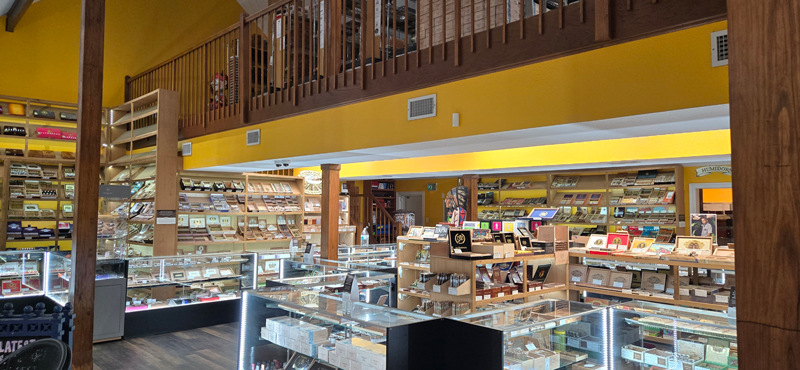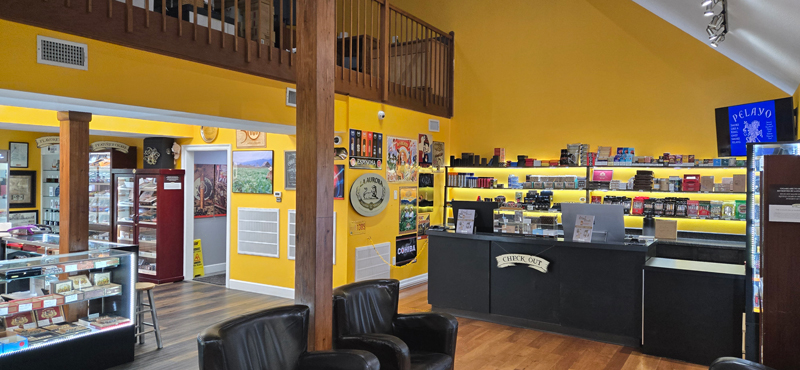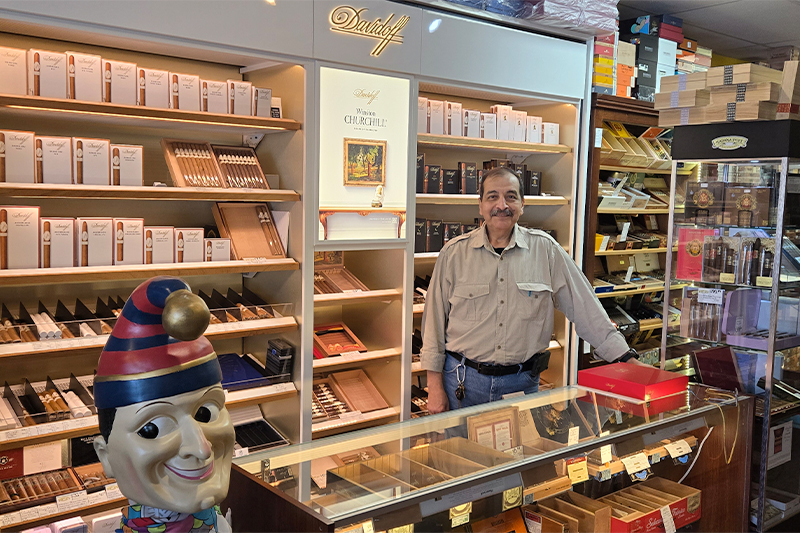In the late 19th century, shortly after New Orleans’ Mardi Gras celebration began to take on its carnival-like spirit, New Orleans was known around the world as the cigar manufacturing capital of the United States. The La Belle Creole Cigar and Tobacco Company, for instance, became the second largest tobacco manufacturing company in the country and, in 1892, produced 40 million cigars. During the golden age of cigars in the city, there were nearly 100 cigar factories.
While New Orleans’ immense cigar-producing tradition has faded since then, cigars still remain part of the city’s traditions, like the “Big Shot” character during the Zulu Carnival, who is known for his derby hat and big cigar. Local tobacconists, of course, also help carry on the city’s cigar tradition, and with the cigar world descending on New Orleans for the PCA 2025 Trade Show, we’d thought it would be nice to highlight one Louisiana’s finest cigar shops.
Habana Port Cigar Merchants was established by Roberto and Luis Molina in 2010 in Covington, Louisiana, north of New Orleans and Lake Pontchartrain. Since then, they’ve closed the original Covington location and opened storefronts in Baton Rouge and the New Orleans suburb of Metairie. We talked with Luis about the growth and evolution of Habana Port.

Tell us about the origins of Habana Port.
Luis: So, my father is from El Salvador and he came to the U.S. in the 1970s to study at the University of New Orleans. If you know the history of El Salvador, they were going through a civil war, so he was able to hire an immigration attorney and get political asylum because of the unrest in El Salvador. I can remember in the ’80s visiting San Salvador with my brothers and you could hear bombs going off and machine gun fire. We, of course, were freaking out but no one else seemed to react.
And my father really fell in love with the U.S. and the opportunities it offered. He’s always been an entrepreneur and he became involved in quite a few businesses, from sporting goods to growing coffee to artisanal cheeses. And for me, when I graduated college, I was planning some kind of career on Wall Street but I hadn’t decided yet, so my father suggested I get a part-time job at a local cigar shop until I figured things out. He knew I always liked cigars and thought it would be a good fit. After working at the shop for a month, I realized I wanted to dedicate my career to the cigar.
Never looked back?
Yeah. The shop was actually owned by a large c-store distributor, Imperial Trading, and I started to move up the ladder until I was overseeing the premium cigar division. And then my father joined me, so we were both learning the trade and we started talking about opening up our own cigar shop. So, in 2010, we finally had the money and we opened Habana Port.
So you kind of introduced your father to the industry?
I was the impetus because of my love of cigars but I give him all the credit for getting the business off the ground.
Where does the name come from?
That was my father’s idea. He wanted to incorporate the romantic origin and heritage of the industry. And he thought the imagery of the port would set the right tone.
And you have a house brand. How did that come about?
We have several brands. In fact, we just came out with our 15th Anniversary Limited Edition cigar. It’s called Habana Port Decimoquinto Aniversario and it was blended by Eladio Diaz in the Dominican Republic. We commissioned 15,000 and they are packaged in 15-count boxes.
We always wanted to have our own cigar and with my experience on the importing side, it seemed like a natural fit. For us, it’s a way for our shop to maintain relevancy and a way to differentiate our business by offering a private, exclusive brand. So, when a customer likes it, they have to come to us.
We’re real excited about it. In fact, we’ll be exhibiting at this year’s PCA show under Casa Molina (Booth #1704) because we plan to start offering our blends to other retailers.
Any thoughts of adding more retail locations?
We’d love to expand, but there are challenges in Louisiana compared to many other states, with our smoking prohibitions and excise taxes. And people here don’t have as much expendable income as, say, Texas or Florida, so it’s really about finding the right location and then, of course, finding the right people to work for you. Especially with cigars, where our focus is more service and eye-to-eye contact with customers, it can be a challenge finding the right people.
True. You need employees who are exceptionally dedicated to the craft.
During my time importing where I traveled across the country, I’ve seen the gamut of operations. We’re not interested in having a shop where the person just sits behind the counter and doesn’t even look up or help. Our locations are about high service, and especially as we grow Casa Molina, we’ll be looking to align ourselves with those types of shops.

Absolutely. And that “high service” is certainly a key to any cigar shop’s success. As you celebrate 15 years, what are some other keys to your success?
For us, again, service, attention to detail, helping the client find the right cigars. And also working with manufacturers that are invested in your success, that are really behind brick-and-mortar. You have to invest in your inventory as well and focus on the selection for your clientele.
You also need to adapt and take some risks. There are a lot of shop owners who aren’t doing much to adapt to change and they’ve pigeonholed themselves. I talked to a shop owner at the trade show several years ago. He said to me, “I’m not gonna bring in this $20 cigar because my customers don’t buy $20 cigars.” And you know, I was polite, I didn’t say anything, but in my mind I thought, well, sometimes you have to try something new, right? What about a new customer who may want that price range? We’ve sold $600 Davidoffs that I was hesitant about. We had one client come in a buy seven of them. So, you have to be willing to try cigars at that price point and show customers you’re willing to stock those types of cigars too.
And you really have to have a passion for it. I know it sounds cliche, but if one has a passion for it, the money will come. Try not to focus just on the money. You need to enjoy what you’re doing. I mean, if you’re looking to create high returns, this is not the industry to do it. It’s a slow one, but it’s worth it. I think that’s why, whether we’re talking to a manufacturer, a rep, a client or other cigar shop owners, people tend to be happier in this industry. There are challenges, of course, but I’m happy to go to work each day.
– Photography courtesy of Habana Port. Story by Greg Girard, managing editor of PCA The Magazine.
This story first appeared in the PCA25 Attendee Guide. To receive a copy of this magazine you must be a current member of PCA. Join or renew today at premiumcigars.org/membership.

